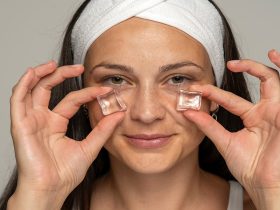If you’re planning to work in Singapore, passing the medical check up for work permit is a necessary step in the application process. This examination ensures that foreign workers entering the country are medically fit to perform their duties without posing a health risk to themselves or others.
Though the medical exam may seem routine, it’s important to prepare properly to avoid delays or rejections. Here’s a complete guide with practical tips to help you pass your work permit medical exam with confidence.
What the Medical Examination Covers
Before diving into the tips, it helps to understand what the medical check-up usually involves. The medical screening for work permit typically includes:
- A physical examination by a doctor
- Chest X-ray to check for tuberculosis
- Blood tests for HIV and syphilis
- Urine tests for sugar and protein levels
- In some cases, pregnancy tests for female workers
- Additional checks depending on your job role (e.g., food handlers may undergo Hepatitis A and B testing)
These tests are standardised and required by the Ministry of Manpower (MOM) in Singapore for all new work permit applicants and renewals.
Tip 1: Know the Requirements for Your Job Role
Not all jobs have the same medical requirements. For example, food handlers or healthcare workers may require additional vaccinations or disease screenings. Make sure to:
- Check with your employer or employment agency for job-specific requirements
- Visit MOM’s official website for the latest medical check-up criteria
- Choose a MOM-approved clinic to ensure the check-up is valid for your application
Understanding what’s expected based on your job function helps you avoid unnecessary surprises.
Tip 2: Prepare for the Test Day
Getting ready the day before your appointment can make a big difference. Here’s what you should do:
- Get enough sleep to avoid affecting your blood pressure or general condition
- Drink water, but don’t overdo it, especially before a urine test
- Avoid alcohol and fatty foods 24 hours before the test, as they can interfere with blood results
- Bring your identification documents, work pass application form, and any past medical reports if you have them
Fasting is not usually required unless advised by the clinic.
Tip 3: Disclose Your Medical History Honestly
If you have a history of medical conditions such as asthma, high blood pressure, or past infectious diseases, don’t hide them. Doctors are trained to assess whether a condition affects your ability to work safely. In most cases:
- Chronic conditions can still allow you to pass if they are under control
- Contagious diseases like active tuberculosis or untreated HIV may lead to rejection
- Past conditions with full recovery often do not affect your application
Being upfront also helps the clinic provide proper guidance if further evaluation is needed.
Tip 4: Avoid Self-Medication Right Before the Test
Some people may try to take medication before the test to influence their results—for example, taking antibiotics to hide a urinary tract infection. This is not recommended and could lead to complications:
- The medication may mask symptoms without treating the underlying issue
- If abnormalities are detected, you may be asked to return for repeat tests
- Falsifying or concealing health issues can lead to permit rejection or revocation
It’s always better to treat any illnesses properly and attend the check-up when you are truly fit.
Tip 5: Follow Up Promptly If Additional Tests Are Needed
Sometimes, clinics may ask you to return for additional tests. This could be due to:
- Abnormal X-ray findings
- Borderline blood results
- Missing information on your first visit
Don’t delay follow-ups. Prompt action avoids delays in your work permit approval process. Keep in touch with your employer or agency if more documentation is needed.
Tip 6: Stay Calm, It’s a Routine Check-Up
For many workers, especially those doing this for the first time, the process can feel stressful. But it’s important to remember:
- Most people pass the exam without issues
- Clinics are experienced and will guide you through each step
- Even if something is flagged, many conditions are treatable or manageable
Taking care of your general health before the exam, eating balanced meals, avoiding stress, and resting well, will help ensure a smooth experience.
Conclusion
Passing the medical check up for work permit is an important milestone in starting your job in Singapore. While it may seem like a routine step, proper preparation and honest communication can make all the difference.
Remember, the check-up is not designed to disqualify workers, it’s there to protect your well-being and ensure a healthy working environment for everyone. So take the time to prepare, stay informed, and attend your appointment with confidence.






